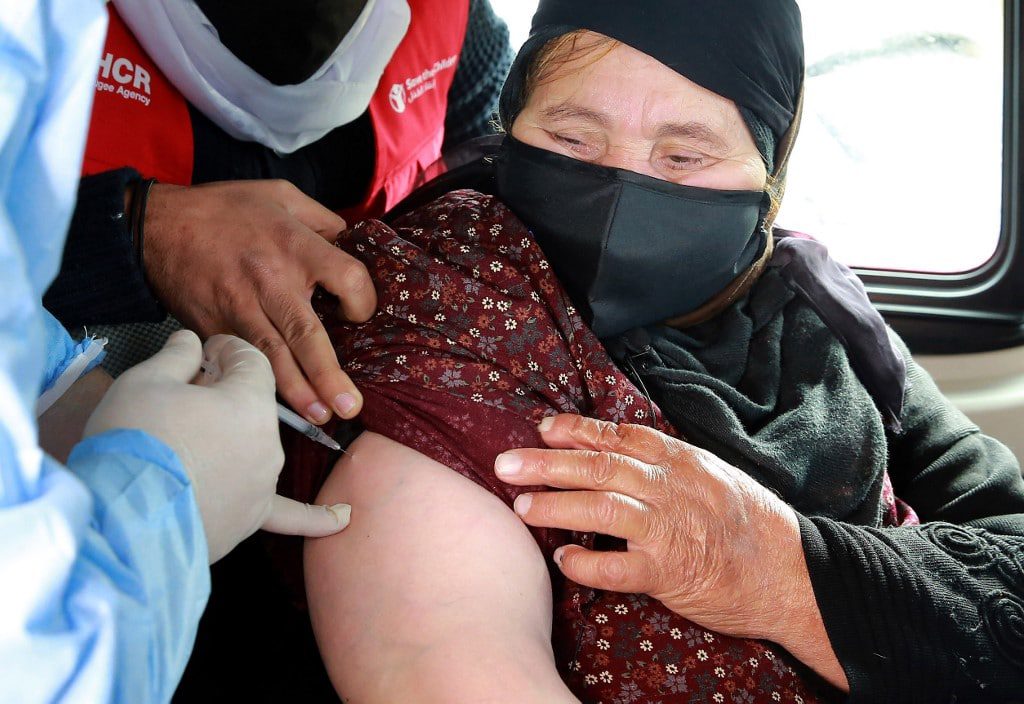
By: Florence Massena
Jordan is a country hosting currently 750.000 registered refugees, of whom around 658,000 are Syrian, although the real total of Syrians is estimated at around 1.3 million, and more than 2 million registered Palestinian refugees. Those people are all included in the national Covid-19 vaccination plan that started on January 14, 2021.
By including the whole population of Jordan, and not just its national residents, Jordan appeared mid-January as one of the world’s first countries to start COVID-19 vaccinations for refugees according to the UNHCR, the UN refugee agency. UN High Commissioner for Refugees Filippo Grandi had declared when the vaccination campaign started that: “Once again Jordan has shown exemplary leadership and solidarity in hosting refugees. The country has included refugees in every aspect of the public health response to the pandemic, including the national vaccination campaign, proving how it should be done if we are to keep everyone safe […] I appeal to all countries to follow suit and include refugees in their vaccination drives on par with nationals and in line with COVAX allocation principles.”
UNHCR has been advocating for the equitable inclusion of refugees, internally displaced and stateless populations through the COVAX Facility, a global scheme backed by the World Health Organization to provide vaccines to poorer countries. Neighbouring country Lebanon also signed up the COVAX Facility because it cannot afford to buy enough doses for its people. But there, social media was trending from mid-January, with a call for Lebanese to “be first” to receive the vaccine with racist language being used to express this sentiment, directed against Lebanese and Syrian Palestinians, Syrian refugees and other foreigners in vulnerable positions.
This is not the case in Jordan, at least about the Palestinians included in the vaccination plan according to Tamara Al-Rifai, UNRWA [UN agency for Palestinian refugees] spokesperson: “In Jordan, I have not seen any [negative] reactions expressed towards the inclusion of Palestine refugees in national plans. Our position at UNRWA has always been that a virus does not stop at the entrance of refugee camps, so any attempt at limiting measures [to citizens] and any exclusion will only harm the country! Thankfully Jordan declared its commitment to including refugees in its vaccination plans.”
Since the beginning of the Syrian refugee crisis, Jordan, along with Turkey and Lebanon, have hosted more than its fair share of refugees, the Syrians accounted for more than 10% of Jordan’s population, placing immense pressure on the country’s over-stretched resources. The country did help provide work permits and subsidized health care through an official registration from 2016 til 2019 to the Ministry of Interior, within the limit of their official registration towards the UNHCR. Since the beginning of the pandemic and the first refugees and asylum seekers being infected by Covid-19, the Jordanian Health Ministry, local authorities, the UNHCR and other organizations have been able to provide free care to those with mild or moderate symptoms, while the others could access public hospitals.
As of the 24th of January 2021, the UNHCR told Fanack being aware of 152 refugees being vaccinated, including 147 from Zaatari, 3 from Azraq and 2 from Irbid camps, though their local health center in their respective governorate. They are able to register on this vaccine.jo website, waiting to receive an appointment. That could take time, as the Jordanian government has about 3 million doses so far, which could lead to cover 25% of the population in the coming months. Jordan and the UN have asked for additional aid funding to reach their targets, with the UN agency reportedly calling for a further $370 million.
The country prioritizes, like almost everywhere in Europe, older people and people with co-morbidity to get vaccinated first, instead of including a nationality pre-requisite. “We strongly applaud the Jordanian Government’s commitment to include refugees in its national vaccination program, and to roll out vaccines based on age and medical vulnerability regardless of nationality”, Muriel Tschopp, country director for the Norwegian Refugee Council told Fanack. “On this, as in other areas, Jordan is setting an example to other countries in the region in its accommodation of refugees, and we urge other countries to follow suit in ensuring refugees are included in national vaccination roll out plans.”
71-year old Syrian refugee Manhal Hilal told AFP his family back in Syria was stunned when they learned that he was going to get vaccinated: “They didn’t believe me, they thought I was joking […] I swore to them it was true and they told me I really was lucky”. Vaccination against Covid-19 hasn’t started yet in Syria.
Treatment of refugees and asylum seekers isn’t perfect in Jordan, but they can at least have access to treatment and vaccination in the midst of a global pandemic. Maybe that could give an example for other countries to follow once they receive their first doses of the vaccine.


